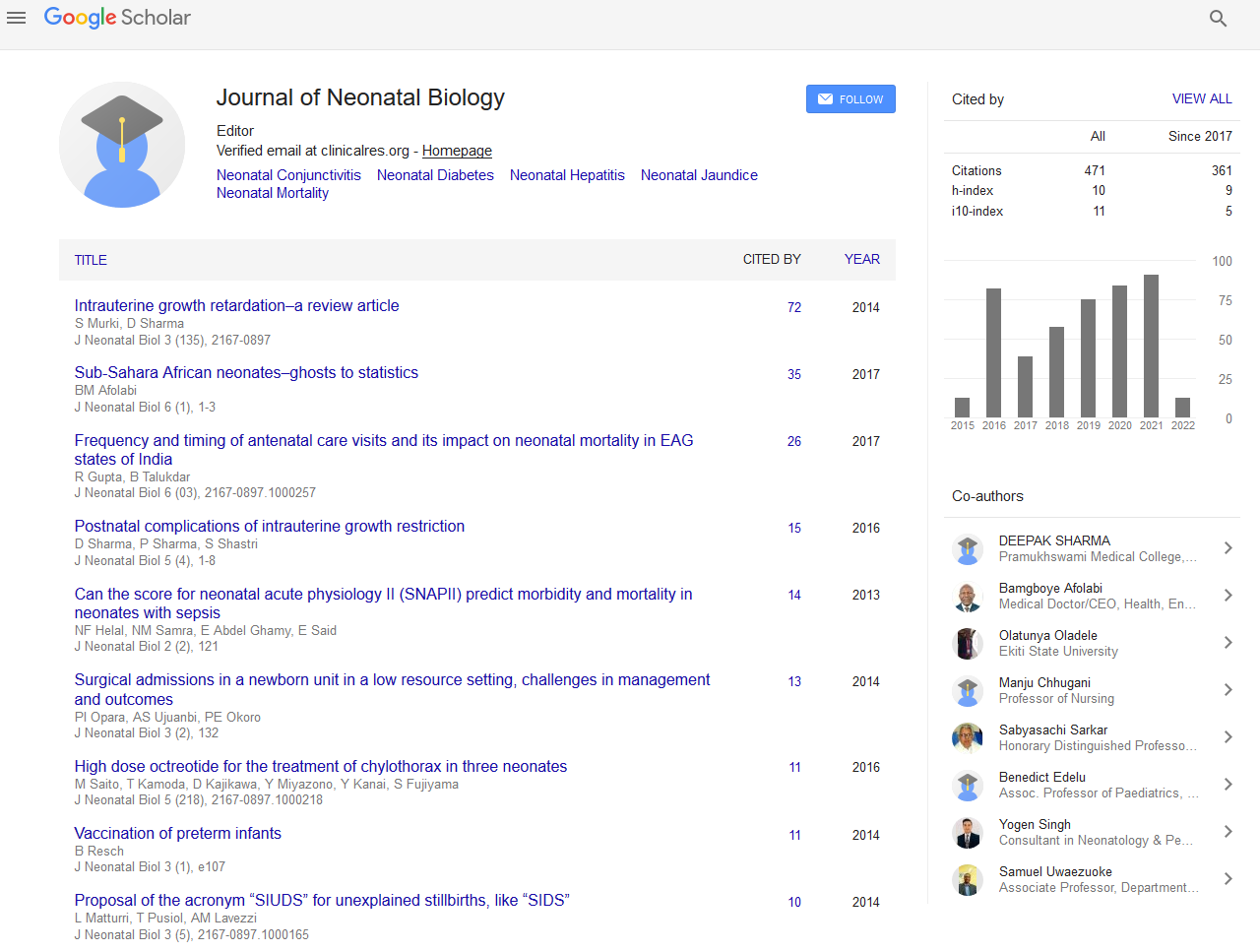PMC/PubMed Indexed Articles
Indexed In
- Genamics JournalSeek
- RefSeek
- Hamdard University
- EBSCO A-Z
- OCLC- WorldCat
- Publons
- Geneva Foundation for Medical Education and Research
- Euro Pub
- Google Scholar
Useful Links
Share This Page
Journal Flyer

Open Access Journals
- Agri and Aquaculture
- Biochemistry
- Bioinformatics & Systems Biology
- Business & Management
- Chemistry
- Clinical Sciences
- Engineering
- Food & Nutrition
- General Science
- Genetics & Molecular Biology
- Immunology & Microbiology
- Medical Sciences
- Neuroscience & Psychology
- Nursing & Health Care
- Pharmaceutical Sciences
Abstract
Impact of Infant-Polysomnography Studies on Discharge Management and Outcomes: A 5 Year Experience from a Tertiary Care Unit
Ahmed Fageer Osman, Biju Thomas, Nakul Singh, Marc Collin and Prem Singh Shekhawat
Objective: To evaluate the impact of infant-polysomnography studies performed in the NICU on management and outcomes. Study design: Retrospective study to collect demographics and data on infant-polysomnography studies between Jan 2010 to Dec 2014. Results: 110 premature neonates had polysomnography study performed at 36.9 ± 2.5 weeks post menstrual age. Almost all the studies were read as abnormal and 95% of the studied infants were discharged home on a cardiorespiratory monitor. 20% of the subjects had apnea >20 s, 18% had apnea of 15-20 s and 50% of infants had apnea of 10-15 s. 24.5% infants were discharged home on caffeine, 28% on metoclopramide and 24% on antacids. There were 11 readmissions for apparent life threatening events with no deaths until 6 month-corrected age. There was no association between polysomnography results and readmission. There was a decline in polysomnography studies performed each year. Conclusion: Cardiorespiratory monitoring, medications and polysomnography studies do not predict outcomes.


